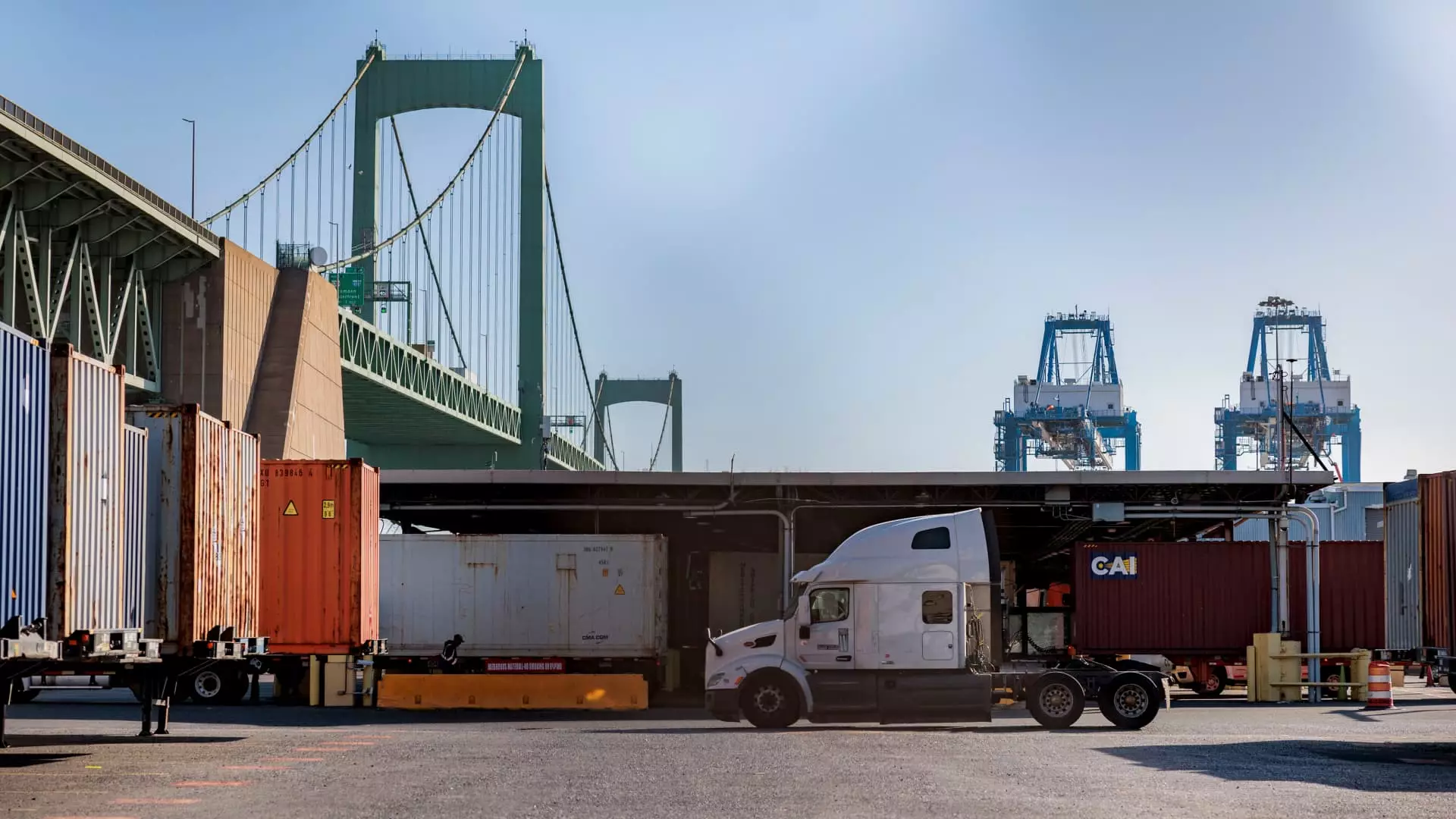As discussions around tariffs intensify under the Trump administration, there’s a growing need to critically evaluate the efficacy of such economic strategies. Particularly, the audacious idea of adopting an “all tariff policy” to potentially eliminate federal income taxes has sparked significant debate among economists and policymakers. This proposal, which Trump hinted at during his presidential campaign, prompts essential conversations about sustainable fiscal policies in the context of modern economic challenges.
Historically, tariffs have played a substantial role in financing government expenditures. However, that was during an era when both the governmental apparatus and the economy were markedly different. As the costs of government programs have escalated, the relative contribution of tariffs to federal revenue has shrunk dramatically. Figures from the Tax Foundation illustrate that tariffs currently account for only 1.57% of total federal revenue, a stark contrast to the 19th-century paradigm where tariffs were the predominant source of income for the government.
Alex Durante, a senior economist at the Tax Foundation, asserts that it is “not a realistic proposal” to hinge the future of federal revenue on tariffs alone. Given the current economic context where the government spends approximately 22.7% of its gross domestic product (GDP), the idea of financing such spending through the antiquated method of tariffs is misconceived. There’s a fundamental mismatch between the scale of modern governance and the fiscal instruments being considered by policymakers.
To appreciate the magnitude of transitioning away from income taxes toward a tariff-based revenue model, one must consider the current contribution of individual income taxes to the federal coffers. In the 2021 tax year, the IRS reported collecting around $2.2 trillion from individual taxpayers alone. Replacing this with tariffs would necessitate exorbitantly high rates on imports, which could destabilize trade relationships and provoke a cycle of retaliation from other nations.
Erica York, vice president of federal tax policy at the Tax Foundation, emphasizes that “the math doesn’t work.” This calculation is not merely a theoretical exercise; it reflects the reality of complex market behaviors and regulatory frameworks that govern international trade. The prospect of relying solely on tariffs to generate revenue raises the issue of noncompliance and the potential for behavioral changes among consumers, who might adapt their purchasing patterns in response to increased prices resulting from high tariffs.
Furthermore, as highlighted by specialists Kimberly Clausing and Maurice Obstfeld, even a modest increase in tariffs could inadvertently shrink the tax base of imports, negating the intended fiscal impact. They argue that reaching Trump’s ambitious revenue goals of $2 trillion through tariffs could prove to be a futile endeavor.
The geopolitical repercussions of implementing high tariffs cannot be understated either. The imposition of such tariffs has already drawn retaliatory measures from countries like China, which has responded with tariffs on select U.S. imports. These trade wars can lead to decreased market stability and long-term adverse effects on the U.S. economy, particularly for industries reliant on exports.
In this context, Trump’s recent moves to impose a 25% tariff on Canadian and Mexican imports, along with a 10% tariff on Chinese products, present a high-stakes gamble. While these policies are aimed at protecting domestic industries, they may also invite extensive retaliation that could financially burden American consumers and businesses.
As the national conversation evolves around the effectiveness of tariffs, it’s crucial for lawmakers to engage in a nuanced dialogue about sustainable tax policy that reflects the realities of a 21st-century economy. The transition to a tariff-dominated revenue system seems implausible, serving as a reminder that fiscal strategies must be adaptable, rooted in contemporary economic conditions, and mindful of the lessons of history.
While the attractiveness of eliminating income taxes through tariffs is understandable, the underlying logistics, revenue projections, and potential economic fallout suggest it may not be the panacea Trump envisioned. A strategic overhaul of tax policy that considers diverse revenue streams and modern economic dynamics is essential for fostering a robust and resilient fiscal future.

